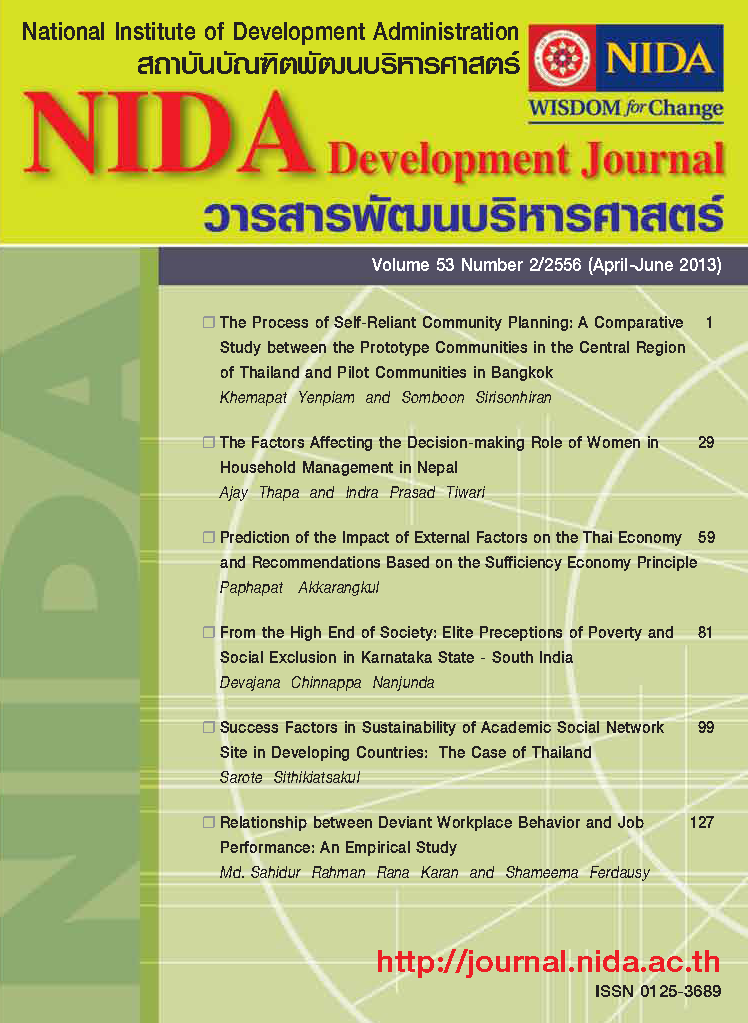From the High End of Society: Elite Perceptions of Poverty and Social Exclusion in Karnataka State - South India
Keywords:
Elite, Poverty, Society, Policy, Social ExclusionAbstract
How do the elite perceive poverty and social exclusion? This paper is a result of an elite opinion study conducted in Karnataka State in the south of India. The poverty debate is an important aspect of Indian society. Poverty and exclusion in India have drawn increasing policy attention since 1960. Over the last six decades, various governments have pursued the long-term goal of promoting an inclusive programme for the poor section of the society. Social exclusion is a process by which people cannot completely participate in the development process due the various social (caste and class), optical, economic, and other reasons. Even though India is experiencing impressive inclusive growth, poverty and social exclusion still exist there. In India urban poverty is clearly visible. Rural poverty is not so visible because of various hidden dimensions in the rural society. According to this study elite felt high quality education system may play a vital role in eradicating poverty in the country and help to increase the quality of human resources. In addition, the elite opined that anti-poverty measures are plagued by corruption in India and require good governance. Corruption is one of the main hurdles to rapid inclusive growth and the reason for the failure of the trickle-down theory in India. It is found that the elite’s perception of social exclusion in India is due to its unique social structure and social dynamics. This study was conducted among selected elite of various social and economic f ields in Karnataka state in the south of India and it provides a solid platform for a comprehensive debate to consider the elite’s perception in framing appropriate public policies in the future.Downloads
Published
24-03-2014
How to Cite
Nanjunda, D. C. (2014). From the High End of Society: Elite Perceptions of Poverty and Social Exclusion in Karnataka State - South India. NIDA Development Journal, 53(2), 81–98. retrieved from https://so04.tci-thaijo.org/index.php/NDJ/article/view/17234





